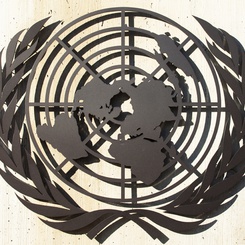Cécile Renouard, Director of the research program CODEV – companies and Development within ESSEC IRENE, shares her in-the-field research with multinationals to map out a strategy to address the sometimes divergent interests of business and ethics and propose a way forward for the transformation of business models.
From “CSR” to” Corporate Responsibilities
When the word CSR is mentioned, the reaction is sometimes a groan, sometimes a moan. More often than not, pushed by the requirement to achieve performance and ROI, companies build their own negative impression of CSR initiatives, both internally and externally.
There are in fact differing perceptions of Corporate Social Responsibility (CSR) among countries and continents. In India for instance, companies are required to spend 2% of their net profit on CSR activities, without a strict definition of the nature of the activities (philanthropy, etc.). The European Commission (2011) defined CSR as “the responsibility of enterprises for their impacts on society”. The Organisation for Economic Co-operation and Development (OECD) issued guidelines for multinational enterprises to contribute to economic, environmental and social progress with a view to achieving sustainable development. The United Nations developed a set of principles for companies and States: the “protect, respect and remedy” framework. Beneficially for companies to ‘walk the talk’ of ethical behaviour, such guidelines laid down by national and international law help them keep to the path.
However, such “soft law” guidelines are not yet translated into national and international laws. Moreover, many ethical dilemmas go beyond the mere compliance to laws, norms or regulations. As far as taxation is concerned, for example, some current transfer pricing practices, that can be legal, can be seen as illegitimate in the sense that companies shift their profit to tax havens and reduce the amounts they pay to the countries where they operate. To manage such dilemmas, companies need to forge a vision of their responsibilities in a broad sense. ESSEC lecturer and researcher Cécile Renouard has developed a framework to help companies map out their responsibilities: companies have an economic and financial responsibility, a social responsibility towards employees, a societal and environmental responsibility, a political responsibility, and lastly an extraordinary and philanthropic responsibility.
The notion of responsibility is connected to a questioning on what a company is, at a philosophical level. Money is only one aspect of a company; a company is a group of people with an impact on the context in which it operates. Moreover, there is a general misunderstanding that a company is owned by its shareholders, whereas, if one looks carefully, the law draws the line between holding a share and owning a company. In this light, a company is a project that must be financed by profit, but which must also – as a body, a moral persona – be consistent with the public interest. A company is not merely an economic player but in many ways a political institution in the sense of the ancient Greek polis, meaning ‘living together’. There lies the meaning of its responsibilities, and more specifically of its political responsibility to collaborate to a political project for the society.
Analyzing and measuring impact on society
Responsibilities are connected to impact: the management of each responsibility goes through minimizing the negative impacts and maximizing its positive impact on those who are affected: the company’s stakeholders.
Impact assessment covers a diversity of approaches. The Companies and Development (CODEV) Research Program at the ESSEC IRENE, ESSEC Business School, applied mixed qualitative and quantitative methods[1] to analyse and measure the impact of multinational companies on their stakeholders – especially the populations around production sites – in the areas in which they had operations in Nigeria, Indonesia, India and Mexico, as detailed below:
- Total’s societal impact on oil-extraction regions of the Niger Delta, Nigeria (2008–2014);
- The Danone project of scavengers’ cooperatives in Indonesia: Managing the fast-growing flow of plastic waste to fight against poverty (2011–2014);
- The Véolia project in Nagpur (India): Public-private partnership (PPP) and access to water (2011–2012);
- Michelin in India: Legal and reputational risks around an industrial site (2012–2015).
- Danone in Mexico: Social impact assessment of Danone’s Pepenadores Project (2013–2015).
The overriding conclusion of such studies is that, when it comes to maximizing the impact of activities at a local level, pure corporate philanthropy initiatives simply do not work. It is not enough to give books and material aid, as has been seen with oil companies in the Niger Delta region. What is effective, however, is Development with a capital D – meaning the Development of capabilities among populations to be (behave) and do (skills). This implies promoting bottom-up participation and initiatives, involving people, empowering them and letting them become aware in order to want to make the change themselves. The companies’ impact on society is also an impact on the relations of the people among themselves. When company impact on its environment is analyzed, the result is that in many cases it decreases social relations. It is crucial for companies to create social relations, links and lasting social cohesion with the communities where they are located. This will require a mindset change and a long, hard look at how a company can help local development – not in the short-term as has so often been the case, but over the long-term. Companies should not be afraid to acknowledge the complexity of the development issues that they face, especially in the emerging markets. Danone, for example, had to learn this the hard way when it tried to implement a development program in Indonesia which turned out to be insufficiently adapted to the social fabric of the informal environment at stake. Other Danone projects worked better in Brazil and Argentina for instance.
Transforming business models
This perspective on responsibilities leads us to view the company’s stakeholders not only as its direct suppliers, customers or social groups around a production site, but as the different groups impacted by its operations along the chain to which they belong, from upstream producers to end-consumers. This relates the company to “political” challenges such as education, pollution, global warming, poverty reduction, etc. This is no longer about local projects led at a very local and limited scale, for a very small number of people, but about a necessary transformation of the business models at a larger scale - meaning a deep transformation of the strategy, production, marketing, finance, supply chain and other functions and practices. Our economy (and most of our laws) was created at a time when we thought resources were inexhaustible. The replacement of humans by machines was also in apparent good faith: essentially to increase standards of living. But these concepts were founded on principles that today seem false: there is no longer “enough land, and as good, left in common for others” as John Locke once stated. Neither is there an infinite stock of oil and gas.
The transformation of our business models is a question for society as a whole. Is it possible to stop saying that it is greater GDP that creates better living conditions for all? True, our economic model has bettered conditions for one part of the world – the industrial world – but the global picture is that it endangers the quality of life of future generations and already leaves many poor people aside. If we want to change, therefore, it is perhaps a question of considering how our economic models contribute to the problem and reflecting on the idea that prosperity is reachable, but by putting emphasis on other dimensions such as lower consumption, sobriety, and modesty in how we go about developing growth and profit.
It is not only the multinational giants who are concerned. Small companies too: not simply because of the domino effect the giants have along the chain to SMEs, but because many small enterprises are motivated, more agile, and more flexible to be able to do things rapidly. Pocheco, the French leader in stationary, is a great example of how a small-sized business can come back from difficulty with a belief in CSR: a shared vision for ethical employee relations and salary ratios and a concern for the environment and its strategy of aiming for quality, the natural, and positive environmental impact. The company creates profit – but with respect for rules, other stakeholders, and the wider perspective. That lends hope.
Of the doubters, the scared, and the leaders
Much in the vein of their political responsibility, companies also have to work with regulators to make sure that the business model transformation is accompanied at the same pace for all and at a global level. Collaboration with national and international institutions is essential to ensure a scale change. A company – using its power and influence and backed up by law and regulations – canindeed have great and positive impact on the world’s future.
Leadership is naturally composed of those who wish to move ahead, those who are cynical, and those who remain in the middle, perhaps scared, perhaps still unconvinced that corporate responsibilities in a broad sense can and must play a part in modern business and economics. It is here that having effective, courageous and ethical leadership within a company can make all the difference. Those who are scared, or doubting, will follow creative and courageous leaders with a positive vision for the future.
1) As an alternative to RCT methods (random control trials), as used by pharmaceutical companies
Useful links:
- Visit ESSEC IRENE
- Learn more about the CoDEV
- Ethique et entreprise, 2013, paperback edition 2015 (in French)
- L’entreprise au défi du climat, published 2015 (in French)
- 20 propositions pour reformer le capitalisme, published 2014 (in French)
ESSEC Knowledge: Cutting-edge research – made practical









